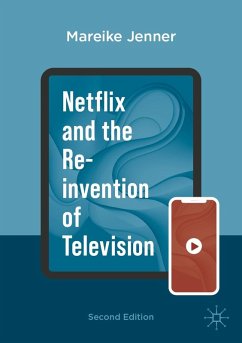-Trisha Dunleavy, Associate Professor in Media Studies and Communication, Te Herenga Waka/Victoria University of Wellington, New Zealand
This book deals with the ways Netflix influenced the contemporary television landscape and built the infrastructures of streaming. It focusses on various ways Netflix reconceptualises televisionas part of the process of TV IV. As television continues to undergo a myriad of changes, Netflix has proven itself to be the dominant force in this development, simultaneously driving a number of these changes and challenging television's existing institutional structures. This comprehensive study explores the pre-history of Netflix, the role of binge-watching in its organisation and marketing, and Netflix's position as a transnational broadcaster. Netflix and the Re-invention of Television illuminates the importance of Netflix's role within the processes of TV IV. This Second Edition highlights the role Netflix plays in the so-called streaming wars and incorporates recent research in television studies. It also re-evaluates the companies' incorporation of issues of diversity in its focus on middlebrow television. The book also includes a new chapter on the transnational streaming franchise, networks of texts developed internal to platforms to build infrastructures of transnational streaming.
Mareike Jenner is a Senior Lecturer in Media Anglia Ruskin University, UK. Her work focusses on streaming and contemporary television as well as issues of middlebrow culture. Her work includes the edited collection Binge-Watching and Contemporary Television Studies (2021) as well as the monograph American Detective Drama (Palgrave Macmillan, 2015) and the forthcoming Recycling Middlebrow Culture: Action TV Re-Boots (2024).
Dieser Download kann aus rechtlichen Gründen nur mit Rechnungsadresse in A, B, BG, CY, CZ, D, DK, EW, E, FIN, F, GR, HR, H, IRL, I, LT, L, LR, M, NL, PL, P, R, S, SLO, SK ausgeliefert werden.









